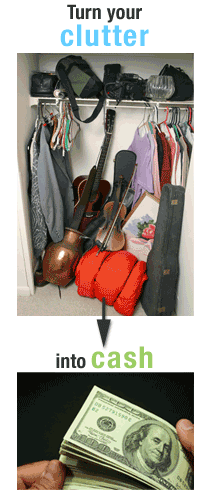Get your foot out of the carburetor!
That's old advice, before fuel injected engines were designed, but the idea works whether your auto has a carburetor or not. Regardless of how restricting it feels to some of us, the 55 mile per hour speed limit set a few years back is still the most efficient speed for most vehicles - and that extra speed won't get you there much faster, anyway.
Jumping is for frogs.
When the light turns red, take off slowly and smoothly - you'll gain speed almost as fast as if you punched the accelerator. And you'll save wasted gas that pours through your system unused.
Slow down and take it easy.
As soon as you can see you'll need to stop, take your foot off the accelerator and let the car slow down under it's own compression. You'll still have to use the brake (unless you started slowing down way back there, but you won't be using gas to get that last 300 or so feet.
"Revving" is old fashioned!
Years ago (watch some old movies if you don't believe me), "revving" or racing an engine was thought to be cool by the younger set, and sometimes still is. Not cool; it's stressing the engine, especially if you do it while the engine is cold. Even if it's warmed up, you're wasting gasoline and wear and tear on it unnecessarily. I repeat -it's not cool.
Don't overfeed your car.
High octane gasoline may be needed for some engines, but find out if yours will run just as well on less. On a nearly empty tank, put in five gallons of a lower octane than you normally use, and if there's no appreciable difference (except for the change in your pocket), find a lower octane gas when that runs out. Keep going until you can tell the difference, then step up one rating. Note: If your engine starts pinging or making other strange noises, increase the octane rating by adding a higer octane gasoline to your tank. This is why you need to test 5 gallons at a time.
Idling is for days off, not cars.
Don't sit still for more than two minutes with your engine running. It takes less gas to start the engine again than it does to idle longer than that. Pay attention to other times than just when you're in a traffic jam - sitting in the driveway, waiting in line anywhere, showing off your new car...
Give it some air.
Did you ever try to ride a bicycle with a low tire? It's hard to do! Much harder than riding one with fully inflated, firm tires. So keep the tires on your car inflated to the manufacturers recommendations. Check the pressure when the tire is cold - that's the right reading. If you have to go to the service station to inflate a tire, take the cold pressure reading first, (for each tire), and check it against the recommended reading. If you're a pound or two shy, make note of it. When you get to the service station, the reading will be higher (because heat expands the air in the tire), so go ahead and add the extra pound or whatever you needed when the tire was cold.
In other words:
Pressure when cold = 29 pounds
Manufacturer's recommendation = 32 pounds, or a difference of 3 pounds.
Pressure when hot = 32 pounds
Add 3 pounds = 35 pounds
When the tire is cold again, the pressure will be 32 pounds, which is what the manufacturer recommended, and is the proper pressure for this tire.
Let it sing and dance.
Well, it might not dance, but it will surely hum along if you tune it up. Check your air filter; if the dust won't shake out cleanly, get a new one. Make sure the spark plugs are clean and properly gapped, and the timing set right. Even if you don't do the work yourself, a tune-up will pay for itself shortly in better gas mileage. Don't carry extra baggage!
No, that's not an excuse for booting out your mother-in-law (I know, another bad mother-in-law joke), but do check your trunk and back seat now and then for unneeded "stuff". One spare tire on a rim, a tire tool, a jack and an emergency kit suited to your weather and driving conditions is all that's really necessary. The more pounds you haul around, the more gas it takes, simple as that.
Avoid artificial air.
Air conditioning is a super drain on your engine's efficiency, so don't use it unless you really need it. If you're within one or two minutes of your destination, turn off the air conditioner and let the fan continue to circulate the cold air in the car. It won't become unreasonably warm in that length of time. And don't buy into the myth that it always takes as much gas to drive with the windows open as it does using the air conditioner. There is some disagreement on the subject, but most advice says that at low speeds and stop and go traffic, it costs less to drive with the windows down, but on the highway, using an air conditioner is cheaper.
Stop when it's time to stop.
Take your foot off the gas completely for at least a few seconds before shutting off the engine. Don't rev the engine just before turning it off. It might sound cool to listen to it die like that, but you're shooting raw gas through the system. Yeah, the same gas you paid for a few minutes ago.
It might help to remember that at $1.50 a gallon, a wasted pint of gas costs you 19 cents. If you manage to waste a pint a day (and that's not hard to do), that's $5.70 a month. In a couple or three months or so, you get a "free" tank of gas. Not bad for just doing the things you know you should do anyway, is it?



No comments:
Post a Comment